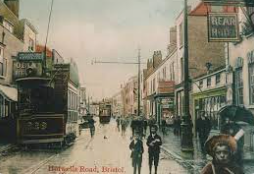Bristol was first founded in the Roman and Iron Age period as a sizable settlement. It was known as Brycgstow, which literally translates as “ the place of the bridge”. It was soon seen as a strategic place to occupy and a series of settlers made it their home. It was given a royal charter in 1155 but found itself split between the county of Gloucestershire and Somerset. By 1373 its population had grown to such a size that it was declared a county corporation, meaning it was a separate area of its own. As of now, it would have given the many Building Companies Bristol based operations like https://www.mogfordprescott.co.uk/builders-bristol lots of work with projects.
The success of Bristol’s growth is due to its location. It is next to the river Avon and Frome which flows into the much larger and wider Severn. This river flowed into the Severn Sea, a natural barrier between England and Wales, and Bristol sits near this making it a great place for a port.
It soon began to take the trade from Europe and the New world into its docks due to the relatively safe passage it had. It could also be a place to get these goods out to the rest of the country.
Whilst this trade brought great wealth it had a dark side. Much of the trade was with Portugal and Spain and was technically banned. However, a weapons trade soon flourish and Bristol was also the epicentre for the Slave trade.





